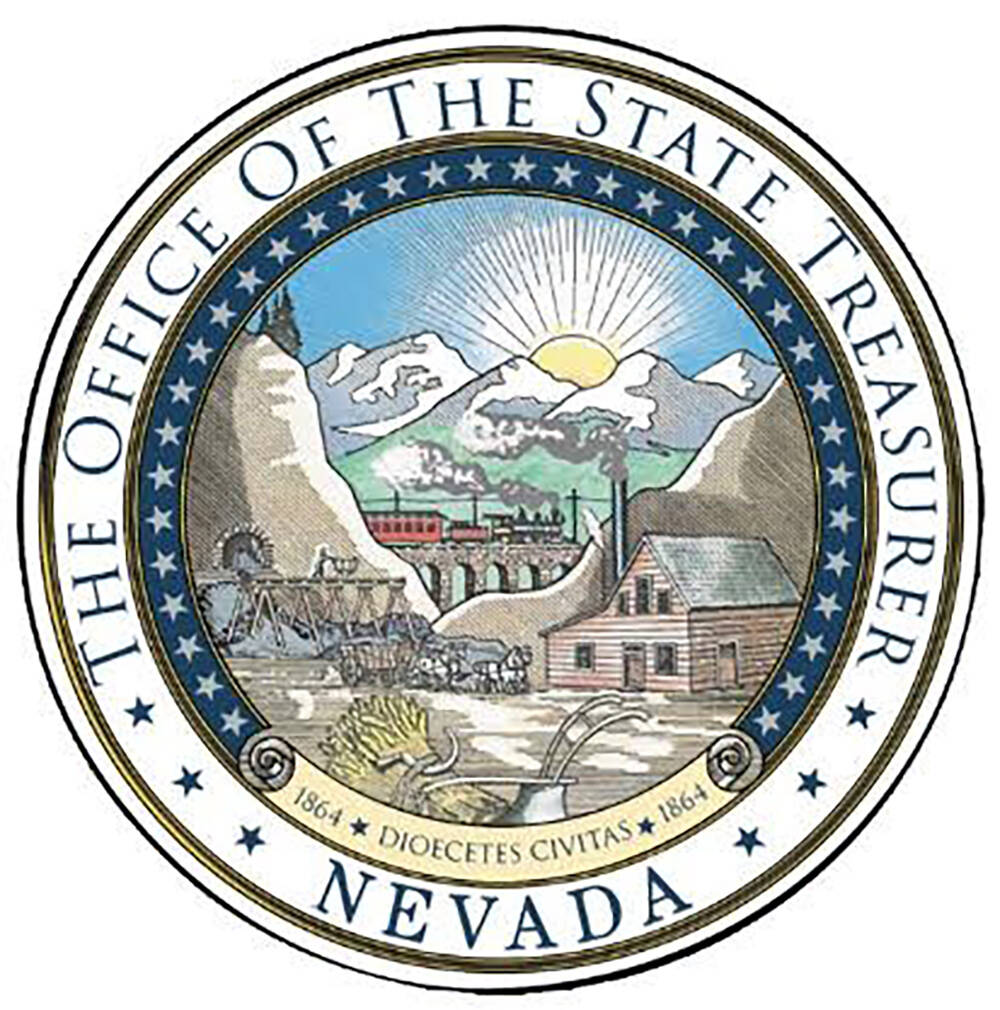Nevada observing College Savings Month this September
For those who wish to pursue post-secondary education, often the biggest consideration is how they are going to pay for it.
Traditional college tuition and even community college and vocational school expenses can range well into the many thousands of dollars and it is never too early to start contemplating a savings plan.
With September being College Savings Month in the Silver State, the Nevada Treasurer’s Office is striving to raise awareness about the need to think ahead or, for those who simply haven’t been able to save up and have the need to secure a student loan, how to be a responsible borrower.
“During College Savings Month, our office wants to use this time to educate Nevadans on what it means to be responsible borrowers, educate them on the different type of financial aid available and also share a few of the different resources available to students and families, particularly the programs we offer in our office,” Nevada State Student Loan Ombudsman Evelyn Castro told the Pahrump Valley Times in a Sept. 3 interview. “In our office we administer many great programs that assist families with planning for, saving for and paying for post-secondary education.”
One of the most well-known programs in Nevada for students seeking higher education is the Governor Guinn Millennium Scholarship. Castro explained that this is a merit-based scholarship that provides up to $10,000 for a student who attends an eligible Nevada institution. However, students must meet with certain requirements in order to receive that scholarship upon high school graduation, so it is not something that will be obtainable by all students.
One of the Nevada Treasurer’s Office’s programs that is open to all students, however, is the 529 Program. “We also administer our 529 Program, and these plans are tax-advantaged college savings accounts,” Castro detailed. “These accounts can be used for tuition as well as other eligible post-secondary education expenses. With 529 plans, there is no age limit, so someone can buy this for a newborn, for themselves, for a high school student, regardless of age.”
For parents who are eager to see their children pursuing higher education after high school, the Nevada Treasurer’s Office offers a Prepaid Tuition Program as well and this program can go a long way in defraying the expense associated with tuition, by securing today’s tuition rates.
“We have the Prepaid Tuition Program and many may not be aware of this, but the price of tuition grows at an average of 4% to 6 % each year. With this program, it allows families to purchase plans that lock in the price of today’s tuition, for use in the future,” Castro stated.
“It’s available for newborns up to students in 9th grade and we have a lot of parents who are definitely taking advantage of this plan. And both the Prepaid Tuition and the 529 plans can be used together, with the Prepaid Tuition Program paying for the tuition and the 529 able to cover other costs, such as books and equipment needed for school.”
Castro said these both these plans are also quite flexible, so if a student were to decide not to pursue college after high school, or if they happen to pass away before they reach college age, the funds set aside are not lost. “If none of the benefits have been used yet, the Prepaid Tuition contract can be transferred to another qualified beneficiary who is a family member that is younger or no more than three years older than the original beneficiary,” Castro said. “The purchaser can keep the contract in effect, as the beneficiary has six years after the projected college entrance date to use their benefits, or the purchaser can cancel the contract and request a refund.”
As for 529 plans, Castro noted, “These can also be transferred to another beneficiary who is a family member, or can be used by the account owner as well.” However, she said if the account owner decides to request a refund or the funds will not be used for educational expenses, they will have to pay the applicable taxes as well as 10% in penalties on their earnings.
“These accounts can be used nationwide at any eligible school in the country,” Castro added. “They can be used at public or private colleges, universities or trade schools that are eligible to accept federal student aid.”
Also on the topic of federal student aid, Castro touched on the Federal Application for Student Aid, better known simply as the FAFSA.
“The FAFSA opens on Oct. 1 every year for the following school year,” Castro explained. “And in order to know if a student is going to qualify, they need to fill out that application. With the FAFSA, they will know whether or not they qualify for grants such as the Pell Grant, for work study, or even for federal student loans. The FAFSA also allows the institution at which the student plans to attend the ability to identify other financial aid that they may be qualified for through that institution. That’s why it’s very important for students to fill out that application and apply for it.”
She said the FAFSA is based on financial need and does require submitting details regarding parents or legal guardians’ taxes but it is still a good idea for all students, regardless of their parents’ financial status, to apply when they are in their senior year of high school. “And that is something I would recommend high school seniors do as early as possible, because a lot of the financial aid that is provided is on a first-come-first-served basis, so the earlier they get that application in, the better chance they will have to receive aid,” she noted.
While it is obviously best to try to have the funding side of things nailed down well in advance, for some this simply isn’t possible and now that they are eyeing the continuation of their education, a student loan may be the only way to cover the costs. When it comes to student loans, Castro is in her element, as she is the state student loan ombudsman and her primary duties are to assist students and parents who are looking to pay for post-secondary education with borrowed funding.
“My program, which is the Student Loan Ombudsman, helps educate students and parents about the different types of financial aid available and helps them understand how to be responsible borrowers if they do decide to take out student loans. And the program also advocates for student loan borrowers and assists them with questions they may have regarding their student loans,” Castro said.
When it comes to student loans, Castro said there is a big difference between federal and private options, so students should take the time to understand their options before signing onto any loan.
“With federal student loans, they provide a fixed interest rate. There are also other benefits associated with federal student loans, such as repayment plans. You can be placed on an income-based repayment program, so your repayment plan is actually based on how much you are earning after you graduate college. There are forgiveness programs as well for certain careers, like teachers or public service,” Castro said.
“With private student loans, sometimes when they market their interest rates, they are usually showing what that rate would be for someone with excellent credit. For those just coming out of high school, they probably have little to no credit history. They may be required to have a co-signer, their interest rate could be quite high, as high as 16% and these loans don’t typically come with the same benefits, such as repayment plans, that students can get from a federal student loan.”
For more information on the various college savings programs available through the Nevada Treasurer’s Office or the Student Loan Ombudsman program visit www.nvigate.gov
Contact reporter Robin Hebrock at rhebrock@pvtimes.com















